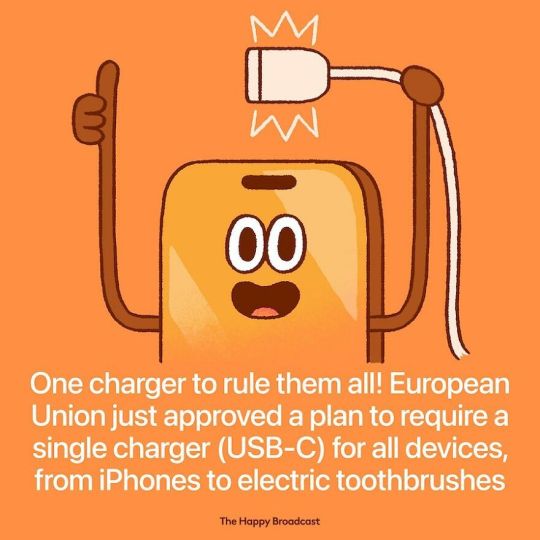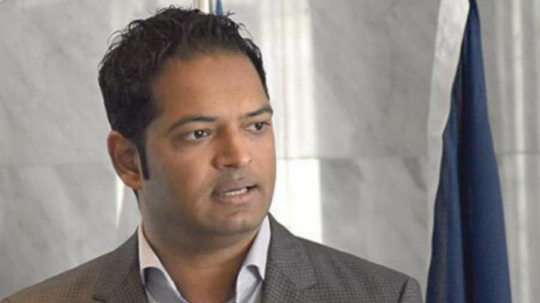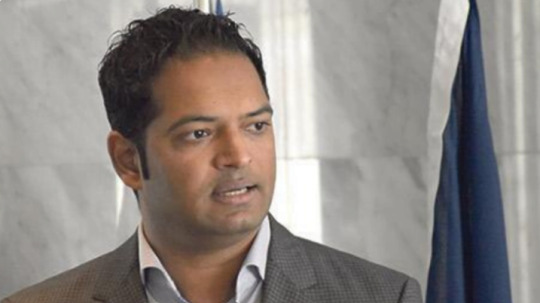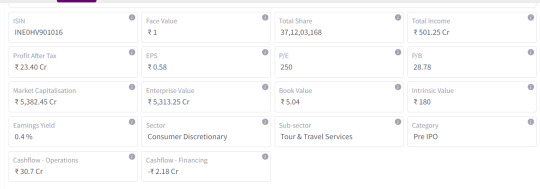#Indian electric bus Companies
Explore tagged Tumblr posts
Text
Things Biden and the Democrats did, this week #10
March 15-22 2024
The EPA announced new emission standards with the goal of having more than half of new cars and light trucks sold in the US be low/zero emission by 2032. One of the most significant climate regulations in the nation’s history, it'll eliminate 7 billion tons of CO2 emissions over the next 30 years. It's part of President Biden's goal to cut greenhouse gas emissions in half by 2030 on the road to eliminating them totally by 2050.
President Biden canceled nearly 6 Billion dollars in student loan debt. 78,000 borrowers who work in public sector jobs, teachers, nurses, social workers, firefighters etc will have their debt totally forgiven. An additional 380,000 public service workers will be informed that they qualify to have their loans forgiven over the next 2 years. The Biden Administration has now forgiven $143.6 Billion in student loan debt for 4 million Americans since the Supreme Court struck down the original student loan forgiveness plan last year.
Under Pressure from the administration and Democrats in Congress Drugmaker AstraZeneca caps the price of its inhalers at $35. AstraZeneca joins rival Boehringer Ingelheim in capping the price of inhalers at $35, the price the Biden Admin capped the price of insulin for seniors. The move comes as the Federal Trade Commission challenges AstraZeneca’s patents, and Senator Bernie Sanders in his role as Democratic chair of the Senate Health Committee investigates drug pricing.
The Department of Justice sued Apple for being an illegal monopoly in smartphones. The DoJ is joined by 16 state attorneys general. The DoJ accuses Apple of illegally stifling competition with how its apps work and seeking to undermining technologies that compete with its own apps.
The EPA passed a rule banning the final type of asbestos still used in the United States. The banning of chrysotile asbestos (known as white asbestos) marks the first time since 1989 the EPA taken action on asbestos, when it passed a partial ban. 40,000 deaths a year in the US are linked to asbestos
President Biden announced $8.5 billion to help build advanced computer chips in America. Currently America only manufactures 10% of the world's chips and none of the most advanced next generation of chips. The deal with Intel will open 4 factories across 4 states (Arizona, Ohio, New Mexico, and Oregon) and create 30,000 new jobs. The Administration hopes that by 2030 America will make 20% of the world's leading-edge chips.
President Biden signed an Executive Order prioritizing research into women's health. The order will direct $200 million into women's health across the government including comprehensive studies of menopause health by the Department of Defense and new outreach by the Indian Health Service to better meet the needs of American Indian and Alaska Native Women. This comes on top of $100 million secured by First Lady Jill Biden from ARPA-H.
Democratic Senators Bob Casey, Tammy Baldwin, Sherrod Brown, and Jacky Rosen (all up for re-election) along with Elizabeth Warren, Cory Booker, and Sheldon Whitehouse, introduced the "Shrinkflation Prevention Act" The Bill seeks to stop the practice of companies charging the same amount for products that have been subtly shrunk so consumers pay more for less.
The Department of Transportation will invest $45 million in projects that improve Bicyclist and Pedestrian Connectivity and Safety
The EPA will spend $77 Million to put 180 electric school buses onto the streets of New York City This is part of New York's goal to transition its whole school bus fleet to electric by 2035.
The Senate confirmed President Biden's nomination of Nicole Berner to the Court of Appeals for the Fourth Circuit. Berner has served as the general counsel for America's largest union, SEIU, since 2017 and worked in their legal department since 2006. On behalf of SEIU she's worked on cases supporting the Affordable Care Act, DACA, and against the Defense of Marriage act and was part of the Fight for 15. Before working at SEIU she was a staff attorney at Planned Parenthood. Berner's name was listed by the liberal group Demand Justice as someone they'd like to see on the Supreme Court. Berner becomes one of just 5 LGBT federal appeals court judges, 3 appointed by Biden. The Senate also confirmed Edward Kiel and Eumi Lee to be district judges in New Jersey and Northern California respectively, bring the number of federal judges appointed by Biden to 188.
#Thanks Biden#Joe Biden#Democrats#politics#US politics#climate change#climate crisis#student loans#debt forgiveness#shrinkflation#women's health#drug prices
459 notes
·
View notes
Text
Hiranandani Industrial Parks Paving the Way for a Greener Future With IGBC Certification
Hiranandani Industrial Parks, a renowned provider of Grade A+ infrastructure and progressive business spaces recently achieved a remarkable milestone. They proudly announced that their company has obtained the prestigious IGBC (Indian Green Building Council) Certification for Sustainable Infrastructure. This certification solidifies Hiranandani Industrial Parks' commitment to sustainable development and positions them as a leader in creating environmentally responsible framework.
Promoting Sustainable Practices
The IGBC Certification is awarded to buildings and infrastructure projects that meet rigorous criteria for sustainable design, construction, and operation. Hiranandani Industrial Parks' dedication to sustainable practices is evident in their projects, which adhere to global standards and green building certification requirements. By integrating eco-friendly measures into their developments, they are setting new benchmarks for sustainable infrastructure in the industry.
Embracing Green Initiatives
Hiranandani Industrial Parks has implemented a range of initiatives to foster a greener future. These initiatives include the promotion of natural habitat and biodiversity through the incorporation of green spaces and the planting of numerous trees within their infrastructure. By prioritising water conservation, the company has installed rainwater harvesting and wastewater treatment systems, as well as incorporated low-flow fixtures to reduce water usage.
Reducing Carbon Footprint
Hiranandani Industrial Parks has strategically planned their infrastructure to reduce vehicular traffic. Their projects are well connected to bus stops, major highways, and even the Chennai Airport, enabling efficient movement of goods and reducing carbon emissions associated with transportation.
Innovation and Energy Efficiency
Hiranandani Industrial Parks embrace innovation to achieve energy efficiency within their infrastructure. They employ Solar Reflective Index (SRI) sheets that reflect sunlight and reduce the need for cooling, resulting in significant electricity savings. Additionally, the strategic placement of transparent sheets on roofs maximises the utilisation of natural light, minimising reliance on artificial lighting. The parks also incorporate ventilation systems that improve air quality and reduce energy consumption. By using LED lighting fixtures and energy-efficient pumps, Hiranandani Industrial Parks ensure that their developments conserve energy and contribute to a sustainable future.
Waste Management and Ecological Soundness
Responsible waste management is a crucial aspect of sustainable development. Hiranandani Industrial Parks promotes waste segregation through the provision of colour-coded dustbins, encouraging proper waste disposal and recycling. They also prioritise the use of environmentally friendly products and materials that meet green standards, ensuring that their projects are ecologically sound and contribute to a healthier environment.
Benefits for Businesses and Communities
The IGBC Certification for Sustainable Infrastructure not only reinforces Hiranandani Industrial Parks' dedication to sustainability but also provides substantial benefits to businesses and communities. Companies within IGBC-certified infrastructure gain a competitive edge by aligning themselves with sustainable practices, which are increasingly preferred by customers and investors. Furthermore, the energy and water-saving measures implemented within the infrastructure result in reduced operating costs for tenants, fostering a more economically viable environment.
Conclusion
The IGBC Certification is a remarkable accomplishment for the industry. It unequivocally proves Hiranandani Industrial Parks' unwavering dedication to sustainable development, energy efficiency, waste management, and ecological soundness and their leadership and vision in creating a greener future. By embracing sustainable practices, they not only enhance the value proposition of their spaces but also inspire other industry players to follow suit. Hiranandani Industrial Parks is paving the way for a sustainable and prosperous future where businesses thrive harmoniously with the environment.
#warehousing facility in chennai#hiranandani industrial parks#industrial parks in chennai#IGBC Certification
2 notes
·
View notes
Video
youtube
మినీ ఆధార్ సెంటర్ స్టార్ట్ చెయ్యండి | Start Mini Adhaar Center from Home/Shop
Get 48 Services with license Contact us on 94940 56339 for more information
Digi seva pay services list
Visit https://www.digisevapay.co.in
Mobile app:
https://liveappstore.in/shareapp?com.digisevapaypro.digisevapaypro.inapp=
Digi Seva Pay services offering more than 48 services
Contact us 94940 56339
1.Adhaar Services Below *Adhaar Address Update *Adhaar download *Adaar PVC card apply *Adhaar Update History *Adhaar Card Slot Booking *Adhaar Bank Link Status chking Fecility
2.Voter ID Services ( New card apply & corrections)
3.Pan Card Services * New Pan Card Apply *Pan card Corrections *Instant Pan card *Minor Pan Card *Duplicate Pan Card
4.Micro& Mini ATM Services *Cash withdrawal *Fund transfer *Cash Deposit *Loan Payments
5.AEPS Fund Transfer
6.AEPS Cash Deposit
7.Mobile Recharges
8.Adhaar Pay
9.QR Code Payments
10.UPI payments scanning facility
11.Online Bank Account opening Facility both Pvt banks and Government banks
12.Zero Balance Account Facility
13.ATM card apply online facility
14.BBPS Payments facility
15.Electricity Bill Payments
16.Waterbill Payments
17.Fastag Payment facility
18.Pan Card NSDL&UTI
19.Micro Loan Facility
20.Insurance Facility
21.Food License Apply
22.Gas Bill payments
23.New Gas Connection Facility(Bharath,HP,Indian Gas)
24.Passport Services
25.Driving License Slot booking and Apply
26.Udyam Registration & MSME Registration Facility
27.LIC Premium Payments
28.TTD Ticket Booking Facility
29.Online Sand Booking Facility
30.Dharani Portal for land Registration
31.Encumberance Certificate
31.Death&birth Certificate
32.Udyam Registration
33.SBI Mudra loan Apply
34.Trading Account Facility
35.Incometax Filing
36.Gov Disability Card Apply
37.Student Loan Apply
38.Credit Card Apply
39.Govt Disability Card
40.PM Kisan for farmers
41.Ayushman Bharat Cards
42.Jeevan Praman Life Certificate
43.Scholership Apply Facility
44.Covid-19 Vaccination Certificate
Below Services Are Coming Soon
45.IRCTC Ticket Booking
46.Ration Card – Mobile number linking
47.Apply for New Ration Card Facility
48.Bus Ticket,Flight Ticket Facility
We will Give the Training in Zoom Session Every Week online
Whatsapp Support and Training Videos will be provided.
Registration Process as per new guidelines: 1.Adhaar card photo 2.Pan Card photo 3.Phone number 4.Email Id 5.Live Location to be shared 6.2-4 Sec video Recording by holding adhaar /pan 7.Any other person reference contact number and ID proof 8.bank passbook photo 9.Ration card photo for address verification
High Lights of Digi Seva Pay Company:
24*7 Fund Transfer Facility
We are having more than 15,000 Satisfied Retailers
More Services with just 999/-
Retailor for 999/-
Distributor for 7,999/-
Super Distributor 14,999/-
Contact us on 9494056339 Note : Registration fees non Refundable
2 notes
·
View notes
Photo
[Image descriptions in order: a doodle of a man crossing out the word "HIV" with red paint. The caption reads "Doctors and HIV researchers announced the fifth case of a patient being cured of HIV! The man is also the oldest person ever to be cured, and had lived with HIV since the 1980s".]
[A doodle of the Loch Ness Monster nuzzling a smiling tree with hearts around it. The caption reads "A green revolution is taking place in Scotland. Its forests are the largest they have been for 900 years. The forested area went from 6% to around 18% today!"]
[A doodle of a phone holding up a charger with one hand and giving a thumbs up with the other, smiling. The caption reads "One charger to rule them all! European Union just approved a plan to require a single charger (USB-C) for all devices, from iPhones to electric toothbrushes".]
[A doodle of a young child, an old woman, and her pet dog sitting in a sheltered bus stop with a small garden of grass and flowers atop. The caption reads "UK is planning for more than 1,000 "bee bus stops". In a bid to save pollinators, bus shelter roofs are being turned into gardens for bees and butterflies".]
[A doodle of a mother rhino pushing three baby rhinos in a yellow stroller. Two of the babies are asleep and the third is smiling at her. The caption reads "More cubs and less poaching mean that the Indian rhino has recovered from being close to extinction. Fifty years ago only 100 Indian rhinos remained in the wild. Now there are over 4000!"]
[A doodle of a bunny scientist happily gesturing to a pink square in a display case. The caption reads "Animal testing could slowly be replaced with experiments using "artificial human tissue" thanks to the groundbreaking work of researchers in Austria. Amazing!"]
[A doodle of the statistic "+40%", where the 0 of 40 is in the shape of a tiger's head. The caption reads "It really is the Year of the Tiger! Population study finds there are 40% more tigers in the wild now than in 2015, giving hope to the endangered species".]
[A doodle of a woman in a rocketship waving at the camera. The caption reads "Astronaut Nicole Aunapu Mann, of the Wailacki of the Round Valley Indian Tribes, will be the First Native American woman to travel to space. Representation!"]
[A doodle of a tree putting a hand out to stop a digging machine, which is running the other way. Beside the tree is a toucan. The tree looks determined and the digger looks nervous. The caption reads "This is a huge win! Some of the world's biggest mining companies have withdrawn requests to research and extract minerals on Indigenous land in Brazil's Amazon rainforest".]
[A doodle of a visually impaired person with dark glasses and a ponytail carrying an old school beatbox radio over their shoulder. The caption reads "There's a radio station in New Orleans for people with a visual impairment. Volunteers every day read to listeners news headlines, grocery ads, stories for kids, novels and even horoscopes!"]
[A doodle of a brain on its knees holding up a white circular pill with a heart on it. The brain looks happy. The caption reads "Millions of Alzheimer's patients have been given hope after a new drug has been shown to slow memory decline by 27% over 18 months. Experts called this the 'beginning of the end' of Alzheimer's!"]
[A doodle of a tampon and a pad in a tartan hat and a kilt. The caption reads "Scotland becomes the first country to make tampons and other menstrual products available free of charge in public spaces in a bid to end period poverty".]
[A doodle of a worm eating a plastic up, with a plate full of other plastic objects and a napkin around their neck. The caption reads "Tiny mealworms may hold part of the solution to our giant plastics problem. New research shows mealworms can not only eat toxic Styrofoam, but that they can break it down safely!"]
[A doodle of a donation box containing water, an apple, and some boxed food. The caption reads "A new California law requires grocery stores and other food suppliers to donate all edible food waste to a food bank or food rescue. This needs to go worldwide!"]
[A doodle of the earth smiling as it holds a bandaid up to a hole. The caption reads "Good news for the ozone layer! New study shows the ozone layer has passed a 'significant milestone' as harmful chemicals drop by 50% since 1980s".]
[A doodle of a solar panel solving SPF 50 sunscreen under the sun. The caption reads "Solar FTW! There are now enough solar panels installed throughout the world to generate 1 terawatt (TW) of electricity from the sun, enough capacity to generate power for all of Europe".]
[A doodle of a bison and a wolf jumping for joy. The caption reads "Wild mammals are making a comeback in Europe thanks to conservation efforts. New data shows us that from otters to red deer, and from wolves to bison, numbers are rebounding by the millions!"]
[A doodle of a branch-like piece of orange coral holding a bowler hat in one hand and a performing cane in the other. The caption reads "After a rough few years of bleaching and wild weather, the Great Barrier Reef in Australia is making a coral comeback. The highest coral cover in 36 years!"]
[A doodle of a person with long hair in a ponytail resting under a tree with apple-like fruits shaped like hearts and a bird sitting on their foot. The caption reads "In Panama, nature just got basic legal rights! A new law grants nature the "right to exist and regenerate" meaning the government will have to respect the country's ecosystem in all future policies".]



















Tons more at the source!
#positivity#good news#ironic that this post contains information about visual impairment but no alt text or id#same for the website i couldnt find any alt text or id#Get Better
160K notes
·
View notes
Text
Investment Opportunities in Tata Motors and Ashok Leyland: How to Balance Your Portfolio with Auto Stocks
The automotive sector plays a significant role in the Indian economy, and investing in this sector can offer long-term growth potential. Two of the most prominent companies in this space are Tata Motors and Ashok Leyland, both known for their contributions to the commercial and passenger vehicle markets. Understanding how these companies' stocks perform can help investors balance their portfolios effectively. The Tata Motors stock price has seen consistent growth due to its expansion into electric vehicles (EVs) and its strong presence in the passenger vehicle segment, making it a key player in the Indian automotive industry.
On the other hand, the Ashok Leyland share price reflects its dominant position in the commercial vehicle sector, particularly in trucks and buses. As one of the largest manufacturers of heavy-duty vehicles, Ashok Leyland benefits from government infrastructure projects and increasing demand for transportation services. Both companies are integral to the Indian auto industry, but they operate in slightly different markets, providing a balanced investment opportunity for those looking to diversify within the sector.
Why Invest in Tata Motors?
Tata Motors, a leading Indian automaker, makes the Nexon EV and other passenger cars. The company has successfully entered the electric vehicle market, positioning itself as a sustainable transportation leader. This has raised Tata Motors' stock price and investor interest in recent years.
Jaguar Land Rover (JLR), its global subsidiary, gives the company a strong luxury vehicle presence. Tata Motors is poised for long-term growth with electric vehicle demand and technology advancements. This makes it a valuable addition to any automotive portfolio. Tata Motors' strong financials and EV innovation provide stability and stock value potential.
Why Invest in Ashok Leyland?
Truck and bus manufacturer Ashok Leyland is a major player in commercial vehicles. The company is strong in public transport and logistics. As India invests in infrastructure, commercial vehicle demand will rise, boosting Ashok Leyland's share price.
Ashok Leyland has also been adding electric buses to meet urban demand for cleaner transportation. Diversifying into electric mobility strengthens its commercial vehicle market position. Ashok Leyland offers investors a more stable and sector-focused investment, benefiting from government initiatives and the importance of logistics and transport in a growing economy.
Balancing Your Portfolio with Tata Motors and Ashok Leyland
With exposure to different automotive sectors, investing in Tata Motors and Ashok Leyland can balance a portfolio. Tata Motors' electric vehicle leadership and luxury car presence offer growth potential. Innovation and sustainability position it well for the future, making it appealing to long-term investors.
However, Ashok Leyland's commercial vehicle market dominance provides stability. Electric buses and large infrastructure projects generate steady returns for the company. Ashok Leyland is a safer auto investment, especially for those seeking lower volatility.
By investing in Tata Motors and Ashok Leyland stocks, investors can capitalise on electric vehicle growth while maintaining stability through commercial vehicle investments. This balance lets investors profit from automotive industry shifts without overexposing them to any single segment.
0 notes
Text

The Evolution and Growth of the Indian Bus Industry
The Indian bus industry plays a crucial role in the country's transportation system, serving millions of passengers daily. As one of the most affordable and accessible modes of transport, it connects rural areas to urban centers, facilitates intercity travel, and supports the logistics of public transport within cities. The significance of the Indian bus industry cannot be overstated, especially given India’s vast geography and diverse population. In this article, we will delve into the history, development, challenges, and future of the Indian bus industry.
A Brief History of the Indian Bus Industry
The Indian bus industry has a rich history, tracing back to the early 20th century when buses began to operate in major cities like Mumbai (then Bombay) and Kolkata (then Calcutta). Over time, as industrialization picked up, the demand for reliable public transport increased, leading to the expansion of the Indian bus industry across various states. State governments began setting up their own transportation corporations to manage and regulate
Current Status of the Indian Bus Industry
Today, the Indian bus industry comprises both public and private players, offering a wide variety of services. From city buses and long-distance coaches to luxury buses and mini-buses, the industry caters to a diverse set of travelers. State-run bus services continue to dominate the market, but private bus operators have also made significant inroads, particularly in the intercity and luxury bus segments.
Types of Buses in the Indian Bus Industry
The Indian bus industry includes a wide variety of bus types to cater to different needs. City buses: These buses operate within cities, connecting residential areas to business hubs, schools, hospitals, and shopping areas.
Intercity buses: Operating between cities and towns, these buses provide affordable travel options for those who prefer road travel. Intercity buses in the Indian bus industry range from basic non-AC buses to luxury sleeper coaches.
Luxury and tourist buses: The demand for luxury buses in the Indian bus industry has grown significantly in recent years. These buses cater to tourists and business travelers who prefer comfortable and premium services.
Key Players in the Indian Bus Industry
The Indian bus industry is characterized by a mix of government-operated and private companies. Some of the prominent players include:
State-run corporations: These include the likes of MSRTC, KSRTC (Karnataka), APSRTC (Andhra Pradesh), and TNSTC, among others. They operate an extensive network of buses that cater to both intra-state and inter-state travel needs.
Private bus operators: Many private bus operators have carved out a niche for themselves in the luxury and tourist bus segments. Companies like VRL Travels, SRS Travels, and RedBus have become household names, offering online booking services and comfortable travel experiences.
Challenges Faced by the Indian Bus Industry
Despite its growth, the Indian bus industry faces several challenges that need to be addressed to ensure its continued success. Some of these challenges include:
Traffic congestion: In cities, traffic congestion is a major issue that affects the efficiency of bus services. Long delays and unpredictable travel times can deter people from using buses.
Poor infrastructure: In many parts of India, the road infrastructure is inadequate, especially in rural areas. This affects the smooth operation of buses and limits the reach of the Indian bus industry.
Competition from other modes of transport: With the expansion of the Indian Railways and the rise of affordable air travel, the Indian bus industry faces stiff competition, particularly for long-distance travel.
Environmental concerns: The environmental impact of diesel-powered buses is a growing concern. While electric buses have been introduced in some cities, the transition to greener alternatives in the Indian bus industry has been slow.
Regulation and coordination: There is a need for better regulation and coordination between state-run and private bus operators to ensure consistent service standards across the country.
The Future of the Indian Bus Industry
The Indian bus industry is at a crossroads, where it can either continue with the status quo or embrace innovation to ensure future growth. There are several trends and developments that could shape the future of the Indian bus industry:
Electric buses: Several state governments have already launched pilot projects to introduce electric buses into their fleets. These eco-friendly alternatives can help reduce the carbon footprint of the Indian bus industry.
Smart ticketing and digitalization: As India embraces digitalization, the Indian bus industry is not far behind. Several bus operators have introduced online ticketing services, GPS tracking, and real-time updates to improve the passenger experience.
Private sector growth: The involvement of private companies is likely to increase in the coming years, especially in the luxury and long-distance travel segments. With better services, competitive pricing, and the use of technology, private operators could transform the Indian bus industry.
Government initiatives: The government has launched several initiatives to improve public transportation in India. The National Electric Mobility Mission Plan (NEMMP) and the Faster Adoption and Manufacturing of Hybrid and Electric Vehicles (FAME) scheme are aimed at promoting the use of electric vehicles, including buses. These initiatives could provide the necessary boost for the modernization of the Indian bus industry.
Conclusion
The Indian bus industry is an integral part of the country’s transport ecosystem, providing affordable and accessible travel to millions of people. Despite facing challenges like infrastructure issues and environmental concerns, the industry is poised for growth, thanks to advancements in technology and increasing private sector participation. The future of the Indian bus industry lies in its ability to adapt to changing trends and embrace sustainable practices.
As India continues to develop, the Indian bus industry will remain a critical player in ensuring that people can move efficiently and affordably across the country.
0 notes
Text
https://uja.in/blog/market-reports/automotive-sector-in-india/
Automotive Sector In India

The world’s largest two-wheeler manufacturer
Third largest heavy truck manufacturer
World’s largest manufacturer of tractors
World’s second-largest bus manufacturer and fourth-largest manufacturer of cars
Seventh largest in commercial vehicle manufacturing
Automobile sector contributes 49% to India’s manufacturing GDP
India exported ~ 4.8 million automobiles in 2022–23
Indian Government targets 30% of vehicles on the road should be electric by 2030
A total of 3.7 Mn electric vehicles are already registered in India

Recent and planned developments in the Indian Automobile Sector.
According to IBEF, In November 2023, Tata Motors inaugurated its state-of-the-art registered vehicle scrapping facility in Chandigarh.
In June 2023, Hero MotoCorp revealed plans to invest up to Rs. 1,500 crore in developing premium bikes and EVs in India.
In May 2023, Maruti Suzuki India revealed plans to invest over Rs. 40,000 crore to double capacity by 2030.
In March 2023, the Central government sanctioned Rs. 800 crore million under FAME India Scheme Phase II to Indian Oil (IOCL), Bharat Petroleum (BPCL), and Hindustan Petroleum (HPCL), for setting up 7,432 public fast charging stations across the country.
In February 2023, German luxury car maker Audi India began local production of the Audi Q3 and Audi Q3 Sportback at the Skoda Auto Volkswagen India Private Limited (SAVWIPL) plant in Aurangabad.
In February 2023, Nissan and Renault revealed a plan to invest Rs. 4,800 crore in India over the next 3–5 years to expand their market share in passenger cars and electric vehicles.
In February 2022, a memorandum of understanding (MoU) was signed between the electric two-wheeler company Ather Energy and the Electric Supply Companies (ESCOMs) of Karnataka for setting up 1,000 fast charging stations across the state.
To know more info, click the link here- https://uja.in/blog/market-reports/automotive-sector-in-india/
#Automotive Sector#Automotive Sector In India#Indian Automobile Sector#automobile#Automotive Clusters#Automobile Industry#Electric Vehicles Market in India#Electric Vehicles Market#Electric Vehicles#EV Industry#uja global advisory#uja global#uja
0 notes
Text
Green advertising provider CashurDrive's initial public offering

CashurDrive Marketing Limited, a green media publicity services provider in India, announced the filing of its Draft Red Herring Prospectus (DRHP) with NSE Emerge. The company’s initial public offering comprises a fresh issuance of 35,42,400 equity shares and an offer for sale of up to 11,37,600 equity shares, each with a face value of Rs 10, through the book-building route. The offer for sale is by selling shareholder Parveen K Khanna.
According to DRHP, CashurDrive intends to utilize Rs. 27 crore of the total proceeds from the IPO to fund its working capital requirements and plans to use the remaining capital for general corporate purposes.
The Noida-headquartered company’s portfolio includes transit media, outdoor media, digital wall painting media, events and promotion, and digital marketing services, all woven into a cohesive strategy aimed at reducing carbon footprints.
The company's eco-friendly initiatives have secured advertisement rights on 1100 EV buses, coupled with strategic agreements to establish EV charging stations with advertising rights, showcasing CashurDrive's commitment to sustainable practices. The company has secured orders from CREST and HITES for setting up 112 EV charging stations and battery swapping stations for 10 years with advertisement rights on the stations.
One of the standout features of CashurDrive’s approach is its partnership with CashurDrive Electric Vehicles, solidifying its leadership in the emerging market of ESG-compliant green media advertising. Through this alliance, CashurDrive holds an additional 77 outdoor advertisement opportunities on EV charging and battery swapping stations, making a total of 189 EV charging stations and swapping stations, a testament to its dedication to clean energy and sustainable green media.
Corporate Capital Ventures is the exclusive book-running lead manager to the offer, and Bigshare Services Private is the registrar.
CashurDrive’s accreditation with the Indian Newspaper Society (INS) and registration with DAVP and the government of various states shows its commitment to delivering high-quality services in the advertising industry. With its branches strategically located at Chandigarh, Lucknow, Mumbai and Noida, CashurDrive has established a strong network of clients across India through which it serves its customers across several sectors such as pharmaceuticals, education, electronics, automobiles, FMCG, apparel, insurance, housing, hospitals, financial services, aviation, and government organizations.
Founded in 2009 by an IIT alumnus Raghu Khanna, CashurDrive initially focused on commercial vehicles like transit space, later expanding into a full-service advertising agency including outdoor, TV, print ads, bus branding, auto hood branding, digital wall painting, billboard advertising, and outdoor campaigns.
The company has been dedicated to advertisements, eMobility, and EV infrastructure. This includes strategic partnerships with various charge point operators (CPOs), which solidify its leadership in the emerging market of EV advertising.
CashurDrive registered Rs. 102.63 crore in revenue from operations with a profit (PAT) of Rs. 11.83 crore in the fiscal year 2023-24, compared to Rs. 81.89 crore in revenue from income and a profit (PAT) of Rs. 5 crore in FY2022-23.
0 notes
Text
Types of Buses in India

State Transport Buses: These government operated buses are the backbone of intercity and intracity travel. They are economical and serve both urban and rural areas extensively.
Luxury Buses: Equipped with comfortable seating, air conditioning and sometimes entertainment systems, these buses are perfect for long-distance travel. They are operated by private companies and provide a premium travel experience.
Sleeper Buses: It is ideal for overnight journeys, sleeper buses offer beds instead of seats. They provide a convenient way to travel long distances while saving on accommodation costs.
Electric Buses: As a green initiative, electric buses are becoming more common in Indian cities. They are eco-friendly and help reduce the carbon footprint of public transport.
Mini Buses: These smaller buses are used for short distances or to navigate narrow roads. They are often seen in urban areas, providing last mile connectivity.
Understanding these different bus types can help you choose the best option for your travel needs, making your journey across India efficient and enjoyable. You can hire according to your preferences with options like the Best Buses in India on rent for a customized travel experience.
#busrentalindia#travel#traveltoindia#busesonrentinindia#bus#busonrentinindia#typesofbuses#busesinindia
1 note
·
View note
Text
Indian-Canadian businessman Ram Tumuluri fails to raise funds for India buses deal
The Mumbai authority fears that Ram Tumuluri may defraud his investors and business partners as Causis does not have a manufacturing or technical capabilities and his German partner, an alleged KGB / FSB agent has no track record in electrical vehicles.

A UK and European electrical vehicles partnership company is struggling to raise funds of around $8 billion to implement an Rs. 2,800-crore electric buses deal with the Mumbai authorities, Indian govt sources told a US publication.
The American Daily Post reported that Indian-Canadian businessman Sri Ram Tumuluri’s England & Wales registered Causis Group Ltd won in October 2021 a tender for supplying The Brihanmumbai Electric Supply and Transport (BEST) with 1,400 electric vehicles but nearly two years later the company is struggling to raise funds and the whole deal is under threat, according to Indian sources familiar with the backdoor discussions around the deal.
UK-based Causis is wholly owned by Tumuluri. Its operating entity is India-registered Causis E-Mobility Pvt Ltd. While on paper it is owned by its directors Marudur Subramanyam Chandrasekar and Ravi Kumar Panga, Causis E-Mobility is in reality controlled by Tumuluri, said the Post.
An Indian government source told The American Daily website: “Causis is using the Memorandum of Understanding (MoU) with Maharashtra Government as a security but banks are demanding sovereign guarantee from the state government, which has not been approved by the government. Causis is struggling to arrange debt and their efforts are ongoing but it is evident Causis has so far failed to find any credible lenders. On paper, there are lots of promises but there is zero delivery so far.”
A source at Causis E-Mobility Pvt Ltd said that Ram Tumuluri has personally invested in his new Electrical Vehicles (EV) venture Causis and is looking for funding but so far his efforts have not succeeded.
The Mumbai authority fears that Ram Tumuluri may defraud his investors and business partners as Causis does not have a manufacturing or technical capabilities and his German partner, an alleged KGB / FSB agent has no track record in electrical vehicles.
Ram Tumuluri lives often in UK’s Sunningdale area in Ascot in a six-bedroom detached house purchased by his wife Sonya Sarah Tumuluri on 25 February 2021 for £2,550,000 with a mortgage with West One Loan Limited, said the paper.
In 2021, Tumuluri entered the electric vehicle (“EV”) sector in the UK, India, and Germany using the brand Causis. Tumuluri is heavily involved in its fund-raising activities and is looking to raise $6-8 billion in India through Causis E-Mobility which was incorporated on 04 June 2021 in New Delhi, India, under company number U34102DL2021PTC381936. Its statutory Directors and Shareholders are Marudur Subramanyam Chandrasekar and Ravi Kumar Panga.
Causis executives told Indian news outlet The Economic Times that through its impact investment fund, the company is looking for an investment of $ 6-8 billion in India with 30% of it coming from equity funding and the rest through debt financing locally. They also said the company has already invested around Rs 300 crore in India towards the acquisition of a bus body manufacturer in Jaipur and a 75-acre plot near Pune for its second plant.
Causis is using the MoU with Maharashtra Government as a security, but banks are demanding sovereign guarantees from the state government, which has not been approved by the government. This is the biggest obstacle Causis is facing, according to government insiders, the American Daily Post reported.
According to an article by Indian news outlet The Indian Express, Causis won a tender for supplying The Brihanmumbai Electric Supply and Transport (BEST) with 1,400 electric buses. In October 2021, the Maharashtra state government, in the presence of environment minister Aaditya Thackeray and industry minister Subhash Desai, signed the contract for Rs 2,800 crore ($370,000).
Aaditya’s father is Maharashtra Chief Minister Uddhav Thackeray, who is also the Chief of Shiv Sena, a regional political party. Subhash Desai is described as “the Thackeray family loyalist” by the Indian press.
Maltese news outlet The Shift News reported Tumuluri’s Electrical Vehicles venture in an article titled “Ram Tumuluri suspected of replicating ‘fraudulent’ Malta VGH model in Mumbai” – a reference to a big health scare scandal in Malta.
Indian authorities have said they have asked Causis to update with the progress but received no response in three months. The deal stands to be annulled if the funding proofs are not provided to the Indian authorities soon, the Post said.
1 note
·
View note
Text
Indian-Canadian businessman Ram Tumuluri fails to raise funds for India buses deal
The Mumbai authority fears that Ram Tumuluri may defraud his investors and business partners as Causis does not have a manufacturing or technical capabilities and his German partner, an alleged KGB / FSB agent has no track record in electrical vehicles.

A UK and European electrical vehicles partnership company is struggling to raise funds of around $8 billion to implement an Rs. 2,800-crore electric buses deal with the Mumbai authorities, Indian govt sources told a US publication.
The American Daily Post reported that Indian-Canadian businessman Sri Ram Tumuluri’s England & Wales registered Causis Group Ltd won in October 2021 a tender for supplying The Brihanmumbai Electric Supply and Transport (BEST) with 1,400 electric vehicles but nearly two years later the company is struggling to raise funds and the whole deal is under threat, according to Indian sources familiar with the backdoor discussions around the deal.
UK-based Causis is wholly owned by Tumuluri. Its operating entity is India-registered Causis E-Mobility Pvt Ltd. While on paper it is owned by its directors Marudur Subramanyam Chandrasekar and Ravi Kumar Panga, Causis E-Mobility is in reality controlled by Tumuluri, said the Post.
An Indian government source told The American Daily website: “Causis is using the Memorandum of Understanding (MoU) with Maharashtra Government as a security but banks are demanding sovereign guarantee from the state government, which has not been approved by the government. Causis is struggling to arrange debt and their efforts are ongoing but it is evident Causis has so far failed to find any credible lenders. On paper, there are lots of promises but there is zero delivery so far.”
A source at Causis E-Mobility Pvt Ltd said that Ram Tumuluri has personally invested in his new Electrical Vehicles (EV) venture Causis and is looking for funding but so far his efforts have not succeeded.
The Mumbai authority fears that Ram Tumuluri may defraud his investors and business partners as Causis does not have a manufacturing or technical capabilities and his German partner, an alleged KGB / FSB agent has no track record in electrical vehicles.
Ram Tumuluri lives often in UK’s Sunningdale area in Ascot in a six-bedroom detached house purchased by his wife Sonya Sarah Tumuluri on 25 February 2021 for £2,550,000 with a mortgage with West One Loan Limited, said the paper.
In 2021, Tumuluri entered the electric vehicle (“EV”) sector in the UK, India, and Germany using the brand Causis. Tumuluri is heavily involved in its fund-raising activities and is looking to raise $6-8 billion in India through Causis E-Mobility which was incorporated on 04 June 2021 in New Delhi, India, under company number U34102DL2021PTC381936. Its statutory Directors and Shareholders are Marudur Subramanyam Chandrasekar and Ravi Kumar Panga.
Causis executives told Indian news outlet The Economic Times that through its impact investment fund, the company is looking for an investment of $ 6-8 billion in India with 30% of it coming from equity funding and the rest through debt financing locally. They also said the company has already invested around Rs 300 crore in India towards the acquisition of a bus body manufacturer in Jaipur and a 75-acre plot near Pune for its second plant.
Causis is using the MoU with Maharashtra Government as a security, but banks are demanding sovereign guarantees from the state government, which has not been approved by the government. This is the biggest obstacle Causis is facing, according to government insiders, the American Daily Post reported.
According to an article by Indian news outlet The Indian Express, Causis won a tender for supplying The Brihanmumbai Electric Supply and Transport (BEST) with 1,400 electric buses. In October 2021, the Maharashtra state government, in the presence of environment minister Aaditya Thackeray and industry minister Subhash Desai, signed the contract for Rs 2,800 crore ($370,000).
Aaditya’s father is Maharashtra Chief Minister Uddhav Thackeray, who is also the Chief of Shiv Sena, a regional political party. Subhash Desai is described as “the Thackeray family loyalist” by the Indian press.
Maltese news outlet The Shift News reported Tumuluri’s Electrical Vehicles venture in an article titled “Ram Tumuluri suspected of replicating ‘fraudulent’ Malta VGH model in Mumbai” – a reference to a big health scare scandal in Malta.
Indian authorities have said they have asked Causis to update with the progress but received no response in three months. The deal stands to be annulled if the funding proofs are not provided to the Indian authorities soon, the Post said.
1 note
·
View note
Text
Who Can Benefit from Solar Energy in Transportation
Imagine a future where vehicles glide effortlessly along the road, powered not by traditional fuels, but by the energy of the sun. This vision is becoming increasingly tangible as solar energy makes its way into the transportation sector, revolutionizing how we move from place to place. In this blog post, we will explore the exciting world of solar energy in transportation and discover who stands to benefit from this innovative technology. Let's dive in!
Benefits of using solar energy in transportation
Solar energy in transportation offers a range of benefits that make it an attractive option for individuals and businesses alike. One key advantage is the significant reduction in greenhouse gas emissions, helping to combat climate change and improve air quality. By harnessing the power of the sun, vehicles can operate more sustainably, reducing their reliance on fossil fuels.
Additionally, solar-powered transportation can lead to lower operating costs over time. With fewer fuel expenses and maintenance requirements, businesses can save money while also promoting environmental sustainability. This cost-effectiveness makes solar energy an appealing choice for fleet owners looking to reduce their carbon footprint and overhead expenses simultaneously.
Moreover, utilizing solar energy in transportation promotes energy independence by relying on a renewable resource that will never run out. This not only contributes to a cleaner environment but also enhances overall resilience against fluctuations in traditional fuel prices.
Types of vehicles that can be powered by solar energy
Solar energy is a versatile and sustainable power source that can be harnessed to fuel various types of vehicles. From cars and buses to boats and even planes, the possibilities are endless when it comes to integrating solar technology into transportation.
Electric cars equipped with solar panels on their roofs can capture sunlight and convert it into electricity, extending their range and reducing reliance on traditional charging methods. Solar-powered bicycles are gaining popularity as an eco-friendly alternative for short commutes, allowing riders to pedal with the assistance of renewable energy.
Public transportation systems like buses and trams can also benefit from solar energy by installing panels on their rooftops or at stations to offset operating costs. Additionally, solar-powered boats offer a quiet and emission-free way to navigate waterways while minimizing environmental impact.
Innovations in aviation have led to the development of solar-powered drones and experimental aircraft that rely solely on sunlight for propulsion. These advancements showcase the potential for solar energy to revolutionize not just land-based transportation but also air travel in the future.
Success stories of companies using solar energy in transportation
One success story in the realm of solar energy in transportation comes from China, where the Shenzhen Bus Group implemented a fleet of electric buses powered by solar panels on their roofs. These buses can travel up to 12 miles on a single charge and have significantly reduced carbon emissions!
Another notable company making strides in solar-powered transportation is Tesla, with their innovative electric cars equipped with solar roof options. These vehicles harness the power of the sun to extend driving range and lessen reliance on traditional charging methods.
Moreover, Dutch company Lightyear has developed a solar-powered car that can travel up to 450 miles per day using sunlight as its primary energy source. This breakthrough technology showcases the potential for long-distance travel without depleting fossil fuels.
Furthermore, Indian startup Euler Motors has introduced electric three-wheelers for last-mile delivery services powered by rooftop solar panels. These vehicles provide an eco-friendly solution for urban logistics while reducing operational costs.
These success stories highlight how companies worldwide are embracing solar energy in transportation to drive innovation and sustainability forward!
Potential cost savings with solar-powered transportation
Imagine being able to save money while also reducing your carbon footprint by using solar energy in transportation. Solar-powered vehicles offer a sustainable and cost-effective solution for businesses and individuals alike.
By harnessing the power of the sun, transportation costs can be significantly reduced over time. With minimal operating expenses compared to traditional fuel-powered vehicles, the savings from utilizing solar energy can add up quickly.
In addition to lower fuel costs, maintenance expenses tend to be lower for solar-powered vehicles due to their simple design and fewer moving parts. This means less money spent on repairs and upkeep, leading to long-term cost savings for owners.
Furthermore, government incentives and rebates for adopting renewable energy sources like solar power can further offset initial investment costs. These financial benefits make transitioning to solar-powered transportation an attractive option for those looking to save money in the long run.
Environmental impact of solar-powered transportation
As we look towards a greener future, the environmental impact of solar-powered transportation cannot be understated. By utilizing clean and renewable energy sources like solar power, vehicles can significantly reduce their carbon footprint and decrease harmful emissions into the atmosphere.
Solar-powered transportation plays a crucial role in mitigating air pollution and combating climate change by reducing dependence on fossil fuels. This shift towards sustainable energy not only benefits the environment but also improves overall air quality, leading to healthier communities for everyone.
Additionally, solar energy in transportation helps to preserve natural resources by decreasing the demand for non-renewable fuels such as oil and gas. As more vehicles transition to solar power, we take a step closer towards creating a more sustainable and eco-friendly world for generations to come.
Embracing solar-powered transportation is not just about innovation; it's about making a conscious choice to protect our planet and preserve its beauty for future inhabitants. Together, we can drive positive change through environmentally responsible practices that support both present-day needs and tomorrow's possibilities.
Challenges and solutions for implementing solar energy in transportation
One of the main challenges in implementing solar energy in transportation is the initial cost involved. Converting vehicles to run on solar power can be expensive, deterring some companies and individuals from making the switch. However, solutions such as government incentives and subsidies can help offset these costs and make solar-powered transportation more accessible.
Another challenge is the limited range of electric vehicles powered by solar energy. While advancements are being made in battery technology to improve this issue, it remains a concern for long-haul transportation. Solutions like integrating solar panels into infrastructure or using hybrid systems can extend the range of these vehicles and address this limitation.
Additionally, lack of widespread charging infrastructure poses a challenge for solar-powered transportation. To overcome this hurdle, investment in building more charging stations powered by renewable energy sources like solar can ensure a reliable network for drivers relying on clean energy options.
Conclusion
Solar energy in transportation is a game-changer that benefits not only the environment but also individuals and businesses. By harnessing the power of the sun, we can reduce our reliance on fossil fuels, decrease harmful emissions, and pave the way for a more sustainable future. As technology continues to advance and costs decrease, solar-powered transportation will likely become even more accessible and widespread.
Whether you are an individual looking to reduce your carbon footprint or a company aiming to cut operational costs and promote eco-friendly practices, solar energy in transportation offers a range of benefits. The success stories of companies already implementing solar solutions demonstrate that it is not just a concept but a practical reality with tangible results.
As we move towards cleaner and greener modes of transportation, embracing solar energy will play a crucial role in shaping a brighter tomorrow for generations to come. Let's continue to explore innovative ways to integrate renewable energy sources like solar into our daily lives and drive towards a more sustainable future together.
0 notes
Text
Indian-Canadian businessman Ram Tumuluri fails to raise funds for India buses deal
The Mumbai authority fears that Ram Tumuluri may defraud his investors and business partners as Causis does not have a manufacturing or technical capabilities and his German partner, an alleged KGB / FSB agent has no track record in electrical vehicles

A UK and European electrical vehicles partnership company is struggling to raise funds of around $8 billion to implement an Rs. 2,800-crore electric buses deal with the Mumbai authorities, Indian govt sources told a US publication.
The American Daily Post reported that Indian-Canadian businessman Sri Ram Tumuluri’s England & Wales registered Causis Group Ltd won in October 2021 a tender for supplying The Brihanmumbai Electric Supply and Transport (BEST) with 1,400 electric vehicles but nearly two years later the company is struggling to raise funds and the whole deal is under threat, according to Indian sources familiar with the backdoor discussions around the deal.
UK-based Causis is wholly owned by Tumuluri. Its operating entity is India-registered Causis E-Mobility Pvt Ltd. While on paper it is owned by its directors Marudur Subramanyam Chandrasekar and Ravi Kumar Panga, Causis E-Mobility is in reality controlled by Tumuluri, said the Post.
An Indian government source told The American Daily website: “Causis is using the Memorandum of Understanding (MoU) with Maharashtra Government as a security but banks are demanding sovereign guarantee from the state government, which has not been approved by the government. Causis is struggling to arrange debt and their efforts are ongoing but it is evident Causis has so far failed to find any credible lenders. On paper, there are lots of promises but there is zero delivery so far.”
A source at Causis E-Mobility Pvt Ltd said that Ram Tumuluri has personally invested in his new Electrical Vehicles (EV) venture Causis and is looking for funding but so far his efforts have not succeeded.
The Mumbai authority fears that Ram Tumuluri may defraud his investors and business partners as Causis does not have a manufacturing or technical capabilities and his German partner, an alleged KGB / FSB agent has no track record in electrical vehicles.
Ram Tumuluri lives often in UK’s Sunningdale area in Ascot in a six-bedroom detached house purchased by his wife Sonya Sarah Tumuluri on 25 February 2021 for £2,550,000 with a mortgage with West One Loan Limited, said the paper.
In 2021, Tumuluri entered the electric vehicle (“EV”) sector in the UK, India, and Germany using the brand Causis. Tumuluri is heavily involved in its fund-raising activities and is looking to raise $6-8 billion in India through Causis E-Mobility which was incorporated on 04 June 2021 in New Delhi, India, under company number U34102DL2021PTC381936. Its statutory Directors and Shareholders are Marudur Subramanyam Chandrasekar and Ravi Kumar Panga.
Causis executives told Indian news outlet The Economic Times that through its impact investment fund, the company is looking for an investment of $ 6-8 billion in India with 30% of it coming from equity funding and the rest through debt financing locally. They also said the company has already invested around Rs 300 crore in India towards the acquisition of a bus body manufacturer in Jaipur and a 75-acre plot near Pune for its second plant.
Causis is using the MoU with Maharashtra Government as a security, but banks are demanding sovereign guarantees from the state government, which has not been approved by the government. This is the biggest obstacle Causis is facing, according to government insiders, the American Daily Post reported.
According to an article by Indian news outlet The Indian Express, Causis won a tender for supplying The Brihanmumbai Electric Supply and Transport (BEST) with 1,400 electric buses. In October 2021, the Maharashtra state government, in the presence of environment minister Aaditya Thackeray and industry minister Subhash Desai, signed the contract for Rs 2,800 crore ($370,000).
Aaditya’s father is Maharashtra Chief Minister Uddhav Thackeray, who is also the Chief of Shiv Sena, a regional political party. Subhash Desai is described as “the Thackeray family loyalist” by the Indian press.
Maltese news outlet The Shift News reported Tumuluri’s Electrical Vehicles venture in an article titled “Ram Tumuluri suspected of replicating ‘fraudulent’ Malta VGH model in Mumbai” – a reference to a big health scare scandal in Malta.
Indian authorities have said they have asked Causis to update with the progress but received no response in three months. The deal stands to be annulled if the funding proofs are not provided to the Indian authorities soon, the Post said.
0 notes
Text
Ixigo Pre IPO Buzz: Key News and Updates
Ixigo is a leader in the rapidly changing Indian travel business, revolutionizing how travelers book and enjoy their travels. The financial community is ablaze with anticipation as ixigo IPO is highly anticipated, and important updates and news are eagerly awaited. We'll examine the most recent Ixigo Share Price, developments and the elements that fuel the Ixigo pre-IPO hype.
Ixigo's Unlisted shares Journey Overview:
Founded in 2007 by Aloke Bajpai and Rajnish Kumar. Now Ixigo IPO has become a household name in India. It’s one-stop platform for travel-related services Become the USP of the company. From flight bookings to hotel reservations and train journeys, Ixigo has carved a niche for itself by providing users with a seamless and comprehensive travel planning experience. The company has become a major participant in the Indian travel IT market by evolving and adapting to the changing needs of travelers over time.
They assist travelers in making smarter travel decisions by leveraging AI, machine learning and data science led innovations on their OTA platforms, comprising their websites and mobile applications.
Ixigo IPO compares real-time travel information, prices and availability for flights, trains, buses, and hotels for users for transparency along with helping user to take right decision, and also Ixigo allows ticket booking through its associate websites and apps. In 2008, it introduced a hotel search engine on its website. In early 2014 it launched a trains app as well.

Ixigo Pre IPO Details
Ixigo Pre Ipo have received in-principle approvals from BSE and NSE for the listing of the Equity Shares pursuant to letters. Ixigo upcoming IPO proposes to make an IPO which comprises a fresh issue of its equity shares of Re. 1 each and offer for sale by certain shareholders’ existing equity shares of Re 1 each at such premium arrived at by the book building process (referred to as the ‘Issue’), as may be decided by the Company’s Board of Directors.
The company plans to come with an Ixigo IPO by 2024
Current Ixigo Share Price
The face value of each Ixigo share is ₹ 1. Ixigo stock price is ₹ 145/share. Ixigo IPO price band is not disclosed yet.
Ixigo Unlisted share Merger & Acquisition
Ixigo purchased Abhibus on August 5, 2021. By providing its combined user base of almost 25.5 crore customers with a multi-modal transportation experience spanning trains, aircraft, and buses, the agreement will assist Ixigo Group in solidifying its position in tier 2, 3, and 4 markets.
Investments
It is true that Ixigo owns stock in FreshBus, an electric intercity bus service company with headquarters in Bengaluru. Ixigo gave FreshBus Rs 26 million in startup finance in February 2023. This was a calculated financial risk taken to facilitate the introduction of FreshBus's intercity electric bus services throughout India.
Ixigo share price Market Size:
The online travel market in India is expected to reach US$ 31 billion by the end of FY25, growing at a 14% CAGR from FY20.
Travel and tourism, one of the fastest-growing economic sectors in India, contributed US$ 178 billion to the nation’s GDP in 2021.
The India Brand Equity Foundation (IBEF) states that there is a sizable travel and tourist market in India. It provides a wide range of specialised travel products, including cruises, outdoor activities, wellness, medical, sports, MICE, eco-tourism, movies, rural, and religious travel. Both domestic and foreign travellers have acknowledged India as a spiritual tourism destination.
As per the IBEF’s February 2023 report on Tourism and Hospitality, the contribution to the GDP is expected to reach US$ 512 billion by 2028, at a strong CAGR growth of 16% between 2021-28.
The travel industry bounced back remarkably in FY23 after being severely affected by the pandemic and is expected to move at an exponential pace. As per the data published by Directorate General of Civil Aviation (DGCA), the number of passengers that travelled by airlines domestically increased 62% YoY to 136 million passengers in FY23, as compared to 84 million passengers in FY22.
As indicated in the February 2023 IBEF Report on Aviation, India is poised to become the third-largest air passenger market globally by 2024, encompassing both domestic and international travel, and is expected to host over 480 million air travellers by 2036.
According to WTTC, India is ranked 10th among 185 countries in terms of travel & tourism’s total contribution to GDP in 2019.
Ixigo pre ipo User and Involvement:
When assessing Ixigo unlisted share chances of continuing to develop, the size of its user base is crucial. As signs of a strong and devoted customer base, investors will probably closely examine user acquisition tactics, user engagement measures, and customer retention programmes.
In conclusion:
We are in the midst of a critical juncture in the development of the Indian travel tech industry. The ixigo pre-IPO excitement keeps growing. Not only is the success of Ixigo's IPO evidence of the company's accomplishments, but it also shows how confident the market is in travel technology overall. We hope to have a great opening in Ixigo upcoming ipo so that we can book tremendous profit in Ixigo share price.
0 notes
Text
India's JBM Group has made its big entrance into the European market with two electric buses - Ecolife and Galaxy. This marks the company's first time in Europe and they have a lot of experience in the field, having deployed and deployed 5,000 buses in different locations around the world. They have the capacity to produce 20,000 buses a year.
0 notes
Text
The Rapid Growth of the Indian Bus Industry and Latest Electric Bus News
The Indian bus industry has experienced significant growth over the last few years, driven by urbanization, increasing public transportation needs, and technological advancements. Buses continue to be a lifeline for millions of Indians, providing affordable and accessible transportation in both urban and rural areas. Amid this growth, a new trend is reshaping the sector: the transition to electric buses. In this article, we will explore the latest bus news, with a focus on the Indian bus industry and the developments in the electric bus segment.
The Current State of the Indian Bus Industry
The Indian bus industry is vast, catering to diverse needs ranging from intercity travel to rural connectivity and school transportation. The segment has seen a surge in demand as cities expand and mobility becomes a key concern. State transport undertakings (STUs) and private operators have been actively upgrading their fleets to meet the rising demand. One of the major transformations in recent times has been the introduction of electric buses, aimed at curbing pollution and promoting sustainable mobility.
The push toward eco-friendly transportation has encouraged both government bodies and private companies to adopt electric buses. This shift is not only environmentally beneficial but also presents an opportunity to save on fuel costs in the long run. With supportive policies and funding from the government, the future of the Indian bus industry looks promising.
Latest Electric Bus News in India
The move to electric buses in India is gaining traction. Several state governments and municipalities are placing orders for electric buses to reduce their carbon footprint. Companies like Tata Motors, Ashok Leyland, and Olectra Greentech are leading the charge in manufacturing electric buses for the Indian market. Here’s a glimpse of the latest electric bus news shaping the industry:
Government Initiatives: The Indian government’s Faster Adoption and Manufacturing of Hybrid and Electric Vehicles (FAME) scheme is a game-changer. Under FAME II, substantial subsidies are being offered to encourage the adoption of electric vehicles, including buses. Cities like Delhi, Mumbai, and Bengaluru have already rolled out electric buses under this initiative.
New Launches: Recently, Tata Motors launched its new range of electric buses designed specifically for the Indian market. The buses boast enhanced battery life, faster charging, and advanced safety features. Similarly, Ashok Leyland and Olectra Greentech have introduced innovative models with improved mileage and reduced maintenance costs.
Expansion of Charging Infrastructure: One of the key challenges in the mass adoption of electric buses is the lack of charging infrastructure. However, companies and government bodies are investing heavily in setting up charging stations across cities. Several strategic locations are being identified to make charging accessible, even for long-distance routes.
Partnerships and Collaborations: To expedite the deployment of electric buses, companies are forming partnerships with international players. For instance, Olectra Greentech partnered with BYD, a Chinese electric vehicle giant, to bring state-of-the-art electric buses to India. These collaborations are helping bring global expertise into the Indian bus industry.
Challenges and Opportunities in the Indian Electric Bus Market
While the latest electric bus news paints a positive picture, there are challenges that need addressing. High initial costs, limited charging infrastructure, and range anxiety are some of the barriers to widespread adoption. However, these challenges provide opportunities for innovation and investment.
One of the major opportunities lies in localized manufacturing. By producing electric bus components domestically, companies can significantly reduce costs. Additionally, the development of swappable battery technology and rapid charging solutions can help overcome current limitations. As the Indian bus industry grows, so will the need for efficient and cost-effective solutions.
Future Trends in the Indian Bus Industry
The future of the Indian bus industry looks set to be shaped by electric buses, smart technologies, and enhanced passenger experiences. Here are some trends to look out for:
Smart Buses: The integration of IoT (Internet of Things) and AI (Artificial Intelligence) will make buses smarter and safer. Features like real-time tracking, predictive maintenance, and automated fare collection will enhance efficiency and passenger satisfaction.
Sustainability Focus: With rising environmental concerns, the shift towards electric and even hydrogen-powered buses is inevitable. Companies will continue to innovate in battery technology, leading to longer ranges and shorter charging times.
Increased Government Support: Continued support from the government, in terms of policies and incentives, will be crucial for the growth of the electric bus market. The success of initiatives like FAME II will likely lead to more aggressive targets for electric vehicle adoption.
Intercity Electric Buses: While electric buses are already making their mark in urban transport, the next wave will focus on intercity routes. As battery technology improves, buses will be able to cover longer distances on a single charge, making them viable for intercity travel.
Conclusion
The Indian bus industry is undergoing a transformation, with electric buses at the forefront of this change. From government initiatives to new launches and technological advancements, the future looks bright for this sector. As more cities adopt electric buses and the infrastructure improves, the shift towards sustainable transportation will accelerate.
For anyone interested in the latest electric bus news, it’s clear that this is just the beginning. With the combined efforts of the government, private sector, and technology innovators, India is set to become a global leader in electric mobility. Keep an eye on this space for more updates as the Indian bus industry continues to evolve.
0 notes